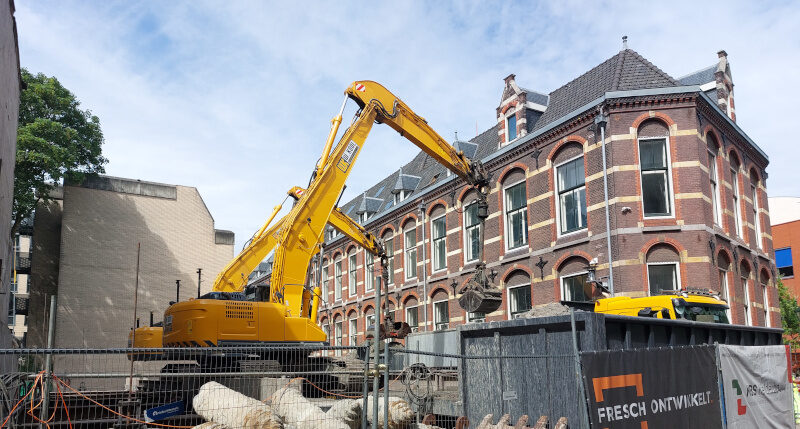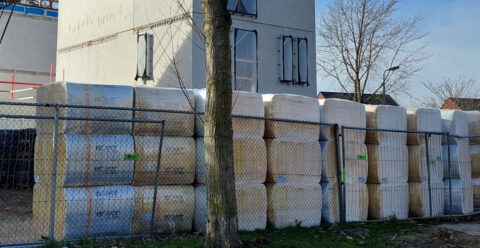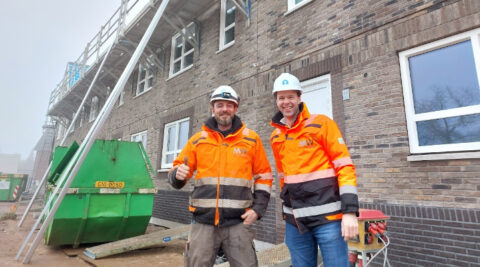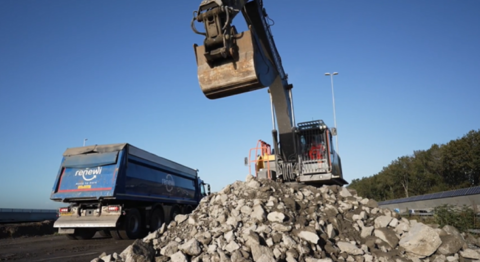The Foundation Coalition, a collaboration of homeowners, housing associations, experts, banks and insurers, is urging the government to develop a national foundation repair plan.
The foundation issue is urgent and the future of hundreds of thousands of homes and their residents is at stake. Homeowners, tenants, housing corporations face great and growing uncertainties about safe and healthy living. The financial concerns are incalculable and unbearable for many. Without government financial support, the recovery will not take off, the coalition partners argue.
Karsten Klein, director of advocacy for Vereniging Eigen Huis: "Waiting until houses become uninhabitable means failure. The cabinet must now establish a national fund and draw up regulations to make foundation repair feasible. It is high time to take cabinet responsibility and tackle foundation problems decisively. Only then will we prevent a dormant problem from degenerating into another housing crisis."
Invisible threat with disastrous consequences
Over the next decade, 550,000 homes in the Netherlands are at risk of an underground disaster. Many homes in our country are built on wooden piles or masonry foundations. Due to climate change, low groundwater levels and subsidence of peat and clay soils, these foundations are weakening and subsiding, resulting in enormous damage. Windows and doors start to jam, plaster crumbles, walls crack, and moisture problems cause mold in the house. Klein: "The similarity with the earthquake problems in Groningen is striking: for residents this means the loss of their safe home. We must never let it come to that. Despite a solid and alarming report by the Council for the Environment, a decisive approach by the government is still lacking."
Foundation repair prerequisite for sustainable living
Homeowners must now pay the entire cost of foundation repair themselves. The bill can amount to more than one hundred thousand euros. Klein: "This is simply unaffordable for many households. After all, they are already being asked to invest in making their homes more sustainable, and without repairing the foundation damage this is pointless. Financial contributions from the government and responsible financing structures are necessary for this.
New construction for vulnerable areas
Due to a combination of aging, foundation damage and an unfavorable energy label, new construction is sometimes the only future-proof solution. Chantal Zeegers, Alderman for Climate, Building and Housing in Rotterdam: "Residents deserve a safe, livable and healthy living environment, but without adequate financing this is not feasible. Most homeowners cannot rebuild their homes on their own. By investing in viable financing solutions, we prevent subsiding, unsafe and unhealthy homes from causing problems for residents and neighborhoods."
Housing corporations in trouble
A number of housing associations have already calculated that a quarter of their property, mostly concentrated in neighborhoods, is at risk of foundation damage. The necessary repair costs run into the hundreds of millions. Liesbeth Spies, chairman of Aedes: "Every euro spent on foundation repair cannot be spent on new construction or sustainability. Repairing foundation damage can often not be postponed for safety reasons. Without financial support and direction from the government, this will be at the expense of other investments that corporations want to make."













